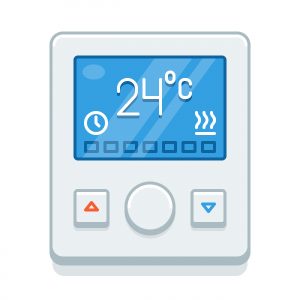Follow these tips for boiler efficiency and save on your annual fuel costs:
The cost of heating a home can make up to 60 per cent of our energy bill in winter. In addition to using energy wisely, we can also cut down costs by increasing our boiler efficiency.
Have your boiler serviced routinely:
Set and follow a schedule to have your boiler serviced, to ensure it is running at optimal efficiency. The average service lasts less than an hour and costs £90+ VAT for the average condensing boiler (a bit more for a high-efficiency condensing boiler and less for a standard efficiency boiler). In addition to cleaning the boiler casing, the heating engineer will check for gas leaks and ensure all the components of the boiler (including the main burner and flue terminal) are working. They will also make sure that your boiler meets all safety regulations.
than an hour and costs £90+ VAT for the average condensing boiler (a bit more for a high-efficiency condensing boiler and less for a standard efficiency boiler). In addition to cleaning the boiler casing, the heating engineer will check for gas leaks and ensure all the components of the boiler (including the main burner and flue terminal) are working. They will also make sure that your boiler meets all safety regulations.
Be prepared to spend between £300 and £650 if a powerflush is required; the latter uses high-speed, low-pressure water to break up any limescale, rust or sludge which may have built up. Your boiler should be serviced at least once a year.
Use a carbon monoxide detector to detect any leaks:
A carbon monoxide detector can easily be placed on or near our boiler, which will let you know if any leaks take place. The detector is cheap and easy to install; make sure to buy one with an alarm bearing the British Standard EN or BSEN 50291 mark.
Ask your boiler company about insurance protection:
Insurance for boilers will save you plenty of cost in the long run, since it usually covers repairs to your boiler, with spare parts and labour included. Coverage usually costs less than £8 per month and can actually start at just £5.
Fit a thermostat onto your boiler:
 This will save you a little per year (in the region of £35 for a four-bedroom home) and reduce your CO2 emissions considerably. Reducing your thermostat temperature by just 1ºC is hardly noticeable yet will save you up to 10 per cent per annum.
This will save you a little per year (in the region of £35 for a four-bedroom home) and reduce your CO2 emissions considerably. Reducing your thermostat temperature by just 1ºC is hardly noticeable yet will save you up to 10 per cent per annum.
Check for sludge in your pipes:
Air and hot water produce iron oxide, which travels through your pipes in the form of black sludge. When this happens, you will notice that some parts of your radiator feel cold. Call your heat engineer as soon as this happens, to have your system flushed out. When it comes to boiler efficiency, prevention is better than cure.
Don’t keep your boiler on all day:
Use a thermostat to time your heating to shut down when it is not needed. Most newer boilers have seasonal modes which will help you select the appropriate amount of energy for different times of the year. Even during the coldest months, you can get by just heating your home for a few hours in the morning and in the afternoon; there is no need for a boiler to be on all day.
Buy a new boiler if necessary:
A new boiler will set you back around £2.000, but you can cut back on costs in the long run. Every year, you can save an average of £300 on heating costs.



